By: Moehammad Amar Ma’ruf; Senior Diplomat, Ministry of Foreign Affairs of the Republic of Indonesia and University of Indonesia’s Post Graduate in Islam and Middleeast Studies.
One of the social issues that scourge the world is poverty. The poverty is seemingly found in every part of the world. Whether it is on a small scale or a big scale. This fact puts poverty as a scourge for the world that may ignite other social issues in the world. For those reasons, it should be taken as a good lesson not only for leaders but also for the community at a large in order to avoid that situation happen in its surroundings.
The lesson of poverty is very important to be known by the community at large due to its worse impact experienced by ordinary peoples/communities. It becomes a must to be avoided by empowering those who suffer to create and offer new chances/opportunities at least for his/her family and surroundings
Various efforts being done and developed by world leaders collaboratively and individually to keep the distances between poverty and his/her citizens. Those leaders were motivated to create a social program by involving all stakeholders that inclusively empowering program. There is a rule of a play on this social action to avoid the feeling of some part of groups being ignored and left behind. The used-method program is bottom-up activities that support and facilitate many ideas and creativity of the grassroots.
Also Read: Leila Khaled, The Icon of Palestinian Women’s Resistance
The problem of poverty is interrelated with political, economic, and cultural aspects. If these aspects neglect each other and exclude social cohesiveness and only focusing on egocentric, poverty will be mushrooming. Implicitly, the cause of poverty does not only depend on the political aspect but also involving the mindset and behavior of leaders and communities that may grow among the unhealthy social and cultural interaction due to uncared of corruptive, nepotism and collusion actions.
Politically, the above situation may easily reduce if the commitment of bureaucracy in good governing is established. But, it will be more challenging if good and transparent management being deviated in the middle of social life and interaction.
In a global context, the interrelated issues of poverty were described in the world leaders and communities that have been clearly threatened by the nontransparent and unbalance lifestyles and development. Therefore, it needs a global road map to guard the act and development that sustain and protected from the structural poverty phenomenon. As a subject of development, poverty that spread away in such a country/region almost sure happens due to unbalance and unfair in managing resources (human and natural resources).
This poverty implication becomes more complex if the basic needs could be not be fulfilled due to a fragile economy (chronic problems) life and ages/elderly that may not be independent. It is worse if the number of populations grows uncontrollably and degradation of environmental quality. The challenges become more clear and heavy and have become global challenges that need to be handled globally. Much national law instrument needs to be synergized with global development without ignoring national interests.
Also Read: At Least 7,000 Muslims Perform Friday Prayers at Al-Aqsa Mosque, Palestine
The world leader commitments on vision and mission of sustainable development goals and targets as enshrined in Sustainable Development Goals in 2030 give enlightening directions to all stakeholders, government and nongovernment, and bring collective awareness to work together in guarding balancing between development and socio-cultural and environmental aspects.
This illustrates interrelated efforts with each other that must be shared by countries as members of the world community. The world community can judge that sustainable development goals are a collective endeavor that demands awareness of each country to implement policies that favor sustainable development.
In this regard, as members of the world communities, the countries are requested to report voluntarily any development as indicators that the countries hold international commitment which gives chance for member countries to share their best practices and challenges. This will give opportunities to synergize effort through partnership cooperation. Countries that have a huge population like Indonesia since the beginning made its attention and try to keep its commitment to work and cooperate together in implementing the international commitment on its national development agenda.
One of the development agendas that the Indonesian government seriously pays attention to is how to continuously reduce poverty. Various national programs are being facilitated and initiated involving communities at large, such as the Family Hope Program, hereinafter referred to as PKH, which is a conditional social assistance (KM) program that is designated as a PKH beneficiary family. * (Source of Ministry of Social Affairs Website, 2019)
Also Read: Hala Al-Qadi, The First Palestinian Female Athlete to Win Asian Games Medal
To accelerate poverty reduction, from the year 2007, the Government of Indonesia has implemented Program Keluarga Harapan (PKH). The Social Protection Program, also known internationally as the Conditional Cash Transfers (CCT), is proven to be successful in overcoming poverty, especially the problem of chronic poverty.
As a conditional social assistance program, PKH gives access to poor families, especially pregnant women and children, to utilize a variety of health care and educational facilities in its area. PKH also benefits for disabilities and the elderly by maintaining the level of their social welfare as being instructed by the Constitution.
Through PKH, (Keluarga Miskin/Poor Families) Para KM/PF are facilitated to have access to and utilize basic social services for health, education, food and nutrition, care and assistance, including access to various other social protection programs that are sustainable complementary programs. PKH is directed to become an epicenter and center of excellence in poverty reduction that synergizes various national protection and social protection programs.
The big mission of PKH to reduce poverty. The number of poor people in Indonesia in March 2016 is still 10.86% of the total population of 28.01 million people (BPS, 2016). The government has set a target of reducing poverty to 7-8% in 2019, as stated in the 2015-2019 RPJMN. PKH is expected to contribute significantly to reducing the number of poor people, reducing the gap (Gini ratio) while increasing the Human Development Index (HDI). As a result of the other research shows that PKH gives a good impact on the increase in domestic consumption of PKH at 4.8 %.
Also Read: Israel Approves New Illegal Settlement Plan in East Jerusalem
Recently, the Ministry of Social Affairs that runs the PKH program, received the 2018 Inga Awards from the State Administration Institution (LAN) for its innovation on Integration on Management Information for Social Protection on Disaster period based on Geographic Information System/GIS.
The above development is open to be known and studied for all countries that interested in learning the system as the Chief of Bureau of Planning, Mr. Adhy Karyono, during the meeting with Moehammad Amar Ma’ruf, senior Diplomat from Ministry of Foreign Affairs of the Republic of Indonesia, on June 19, 2019. Mr. Adhy emphasized that Indonesia is delighted in sharing experience with other countries in regards to Social Protection for the Poor.
Other sectors that still related to the acceleration for the 2030 SDGs achievement goals, is empowering program including the promotion of recycling products, being organized in collaboration with Ministry of Foreign Affairs of the Republic of Indonesia and the Environment Division at the Jakarta Governor Provincial Office. The purpose of this program is assisting the City management in Waste or Garbage. The program also invites the participation of the International Organization, namely with Islamic Centre Development for Trade/ICDT, Organ Subsidaire of the OIC. Through this communication, both sides commit to establish a virtual fair/exhibition in promoting their recycling products. By doing this, Indonesia tries to manage at least 20 % from 8.200 tons per day before that waste arrived at the Final Waste Management (Tempat Pembuangan Akhir) in Bantar Gebang.
Relating the Waste and Garbage management, as the official of Environment Divison of the Jakarta Provincial Office, Mr. Rahmat Bhayangkara, organized meeting on May 16, 2019, said that Jakarta Environment official always open to having an exchange of views and experiences with other countries to settle the waste problems. In this context, his office begins to support the social and empowering activists to promote their skills and products to be known in international fora. Mr. Rahmat, an official of Environment Divison said that domestic waste and its related waste will be increasing. In 2017, the kind of waste is achieved at 65,8 million tons. It will increase to 66,5 million tons in 2018, and around 67,8 million in 2020 and 70,8 million tons in 2025.
Also Read: Two Palestinian Activists Included on Time’s List of 100 Most Influential People in World
The above program may give some pictures that Indonesia has done. Meanwhile, the situation also needs a sustainable solution and support from other countries and stakeholders. So other countries do. In this regards the commitment of countries in their road map of development diplomacy on SDGs brings countries closer to each other. For Indonesia partnership in reducing poverty will open many opportunities to work together. Therefore it is appropriate for world leaders and the people in various layers to work hand in hand in creating a world that is more environmentally friendly without abandoning constructive efforts in various fields and forgetting other parties.
Finally, the world should say that partnership will be a legacy for human beings in guarding their future civilization. Wallahu’alam bishowab.(AK/R01/P2)
Mi’raj News Agency (MINA)
Also Read: Jordan: Israel Should Stop Excavation of Near Al-Aqsa





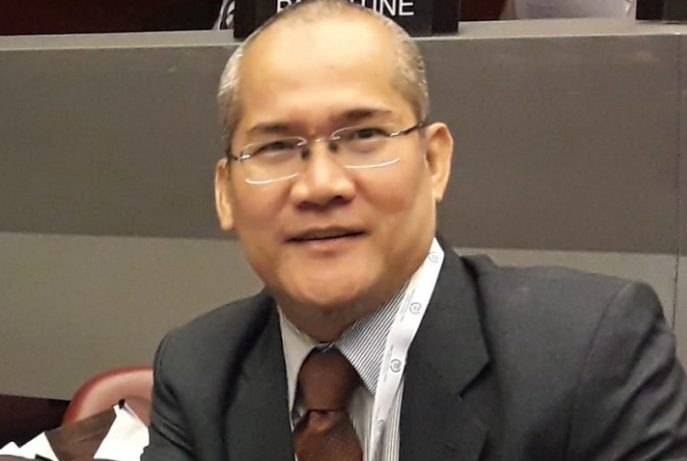



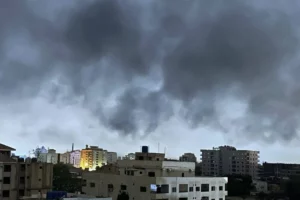

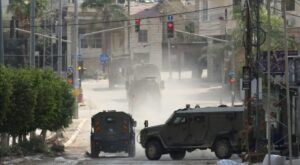
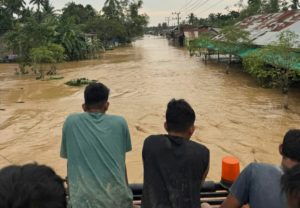

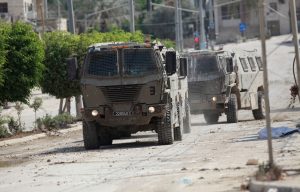











 Mina Indonesia
Mina Indonesia Mina Arabic
Mina Arabic